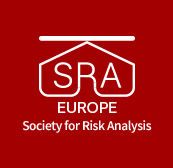Risks and (disruptive) technologies are closely connected. Technologies can reduce risks, but also introduce new ones. Socially disruptive technologies have a huge impact on our lives. Technologies like artificial intelligence, Internet-of-Things, gene editing, social robots and geo-engineering fundamentally change society. Artificial intelligence, for example, can reduce health and safety risks or improve user experiences, but can also lead to social disruption through discrimination and exclusion of specific groups of people, filter bubbles and privacy and security risks.
The Society for Risk Analysis-Europe (SRA-E) Benelux organized its 2021 Conference on 16 March, which focused on the Risk-Technology Nexus, and particularly the trade-offs of potentially disruptive technologies. This event was co-organized with the TU/e Center for Humans and Technology.
The event welcomed researchers, academics, practitioners and policy makers, and of course SRA-E members, and shared the latest insights and practices.
See the keynotes
-
‘Socially disruptive technologies’
Keynote ‘Socially disruptive technologies’, by Peter Paul Verbeek, Philosophy of Technology at the University of Twente, the Netherlands
Read more -
'A psychological vaccine against the risk of misinformation'
Keynote ‘A psychological vaccine against the risk of misinformation’, by Sander van der Linden, Cambridge Social Decision-Making Lab, University of Cambridge, United Kingdom
Read more
Download all abstracts
THE PROGRAM
09.00 - 09.30 - Gather.town is open > come and see our conference environment and meet people!
09.30 - 09.45 – Welcome (Plenary Room)
- Nicole Huijts, Eindhoven University of Technology (TU/e) and SRAE-Benelux
- Ric van Poll, SRA-E Benelux
- Wijnand IJsselsteijn, TU/e Center for Humans and Technology
09.45 - 10.30 - Socially disruptive technologies (keynote 1) (Plenary Room)
- Peter Paul Verbeek, Philosophy of Technology at the University of Twente,
- Chair: Wijnand IJsselsteijn, Center for Humans and Technology
10.30 - 11.00 - Coffee break & Gather.town
11.00 - 12.00 - Parallel sessions (parallel rooms A, B and C, see details below)
12.00 - 13.00 - Lunch break & Gather.town
13.00 - 13.45 - A psychological vaccine against the risk of misinformation (keynote 2) (Plenary Room)
- Sander van der Linden, Cambridge Social Decision-Making Lab, University of Cambridge
- Chair: Nicole Huijts, Center for Humans and Technology
13.45 - 14.-00 - Coffee break & Gather.town
14.00 - 15.00 - Parallel sessions (parallel rooms A, B and C, see details below)
15.00 - 15.15 - Coffee break & Gather.town
15.15 - 16.15 The privacy and security risks of in-home IoT (like smart TVs, smart cameras, and smart speakers) (Plenary Room)
Roundtable / panel discussion: with:
- Nelly Ghaoui | Senior Policy Coordinator Cyber Security at Ministry of Economic Affairs and Climate Policy
- Katleen Gabriels | Philosophy at Maastricht University, author of “Regels voor Robots” (Rules for Robots)
- Jeroen van der Ham | National Cyber Security Centre in The Netherlands and Twente University
- George Loukas | IoT and Security research group of the University of Greenwich (UK)
- Nicole Huijts | Risk perception researcher at Eindhoven University of Technology
Moderator: Frederic Bouder, president SRA-E
16.15 - 16.25 - Wrapping up and looking forward (Plenary Room)
- Nicole Huijts, TU Eindhoven and SRAE-Benelux
- Ric van Poll, SRA-E Benelux
- Frederic Bouder, SRA-Europe
16.30 - Meet each other in Gather.town – bring yourself a drink (Main Square) / Business meeting SRA-E Benelux (parallel room D)
Paralell sessions
>> The abstracts can be downloaded below <<
MORNING SESSION 11.00 - 12.00
Parallel session 1: Perspectives on risk perception 1: privacy and security risk perception of smart devices (parallel room A)
Moderator: Patty Jansen
- Unpacking the Privacy Paradox for the Internet of Things (IoT) by using aspect listing. Qizhang Sun
- Privacy Concern and Privacy-Protective Behavior: The Privacy Paradox in the Context of Mobile Applications. Vanessa Ayres-Pereira
- The effect of perceived privacy and physical safety risks and a cyber-security warning on decision making about smart devices in the home. Nicole Huijts
Parallel session 2: Perspectives on conflicting values, attitudes and beliefs (parallel room B)
Moderator: Catrinel Turcanu
- Safety and security or safety vs security? The benefits of tension venues to deal with safety and security in high-risk organizations. Colin Glesner
- The Two Faces of Intensive Livestock Farming: Perceptions of Residents, Farmers and Other Stakeholders. Valerie Eijrond
- Value Conflicts in Designing for Safety: A Case Study of Miniaturization Processes using Hydrogen Cyanide. Britte Bouchaut
Parallel session 3: Perspectives on transparency and governance of risks (parallel room C)
Moderator: Ric van Poll
- Need for more transparency in scientific risk assessment: the case of EFSA opinions on bisphenol A. Miriam Urlings
- Legitimacy, risk and Luhmann. Richard Pretorius
- Polycentric risk governance in new energy technologies. Ben Riemersma
AFTERNOON SESSION 14.00 – 15.00
Parallel session 4: Perspectives on risk perception 2: Effects on behaviour, acceptance and regulation (parallel room A)
Moderator: Tom Jansen
- Using behavioral psychology to increase smoke alarm ownership. A mixed methods approach. Patty Jansen
- Risk governance as a continuum of risk perception and legality: The harmonisation of EU electricity sector oversight. Susann Handke
- Public opinion of industrial CCS in the UK and the Netherlands: Effects of outcome perceptions, proximity and industry attitudes. Kevin Broecks
Parallel session 5: Perspectives on citizen science and participation in decision making (parallel room B)
Moderator: Colin Glesner
- Stakeholder Engagement in Radiological Protection – Comparing and contrasting three exposure contexts. Catrinel Turcanu
- Unsettling the Science-Technology-Society Nexus: Grassroots Citizen Science as a Risky Technology of Governance. Michiel van Oudheusden
- Examining the factors that influence public participation intention concerning decommissioning of nuclear power plants in Belgium. Ferdiana Hoti
Parallel session 6: Perspectives on technological innovations in health care: attitudes, perception and acceptance (parallel room C)
Moderator: Maarten de Haan
- Risking patient safety: the sad career of a technological innovation. Chris Bennett
- Self-tracking technologies and risk in healthcare. Michał Wieczorek
- Social media posts as indicator of acceptance of vaccines against Covid-19. Margôt Kuttschrauter

